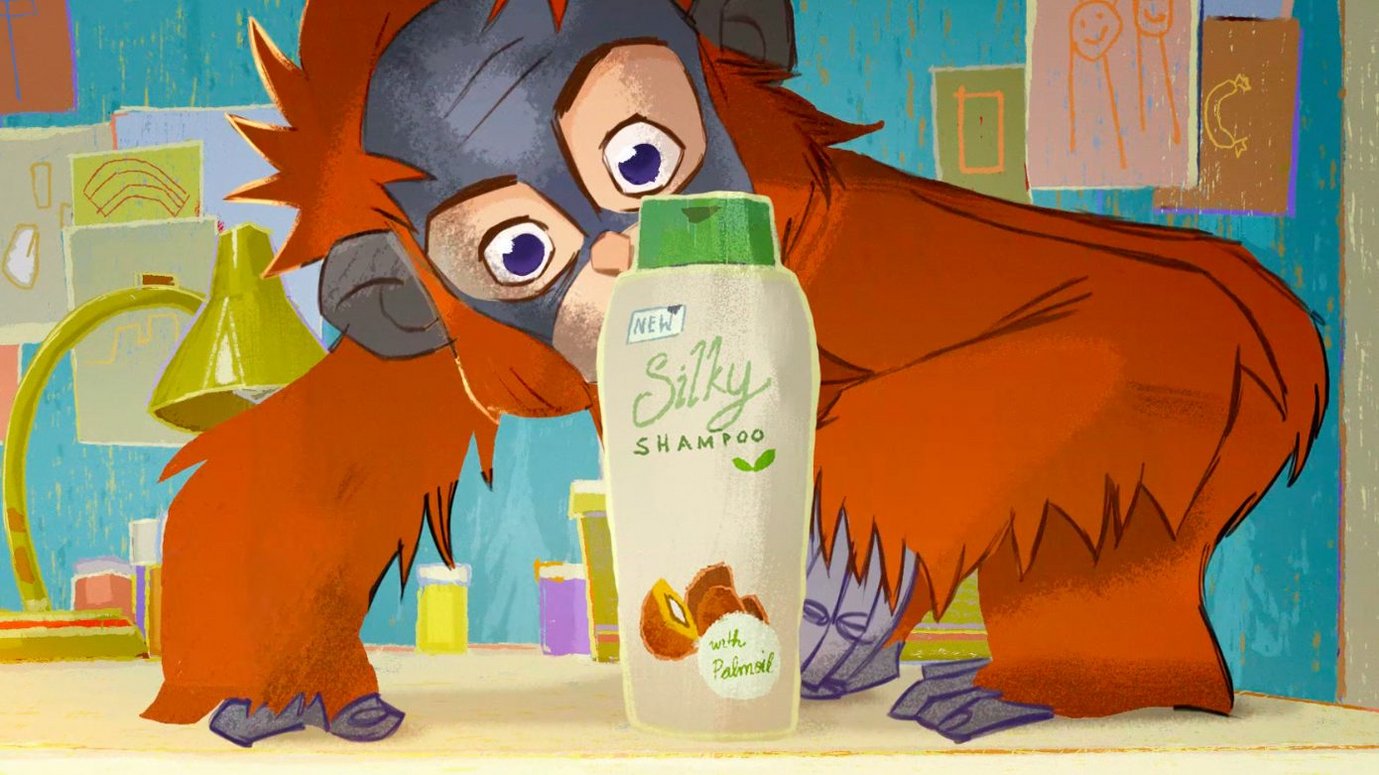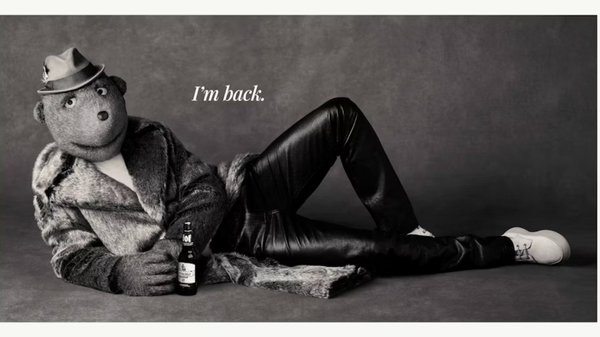Clearcast's Iceland decision shouldn't upset eco-warriors /
Rang-tan might not make it on TV, but maybe that's a blessing in disguise

Earlier this year, Iceland announced it would remove palm oil from all its own-brand products by April 2019. It was the first big British supermarket to do so and I was (and still am) impressed. Palm oil is in almost everything: bread, peanut butter, laundry detergent, shampoo, even lipstick. When you hear about the damage Palm Oil production does to the environment and, consequently, the orangutan population (it has halved it), you start checking ingredient labels, and, let me tell you, you end up putting most stuff back.
My point is, Iceland cutting palm oil from all its own-brand products isn’t a simple task, it’s an investment. So, it’s not surprising that the retailer wanted to tell the whole world about it at a time when people actually seem to care about advertising - Christmas.
Somewhat unusually, Iceland decided the best way to promote its environmental credentials was to re-badge an existing Greenpeace ad about how the palm-oil industry is devastating orangutan populations, and broadcast it on TV.
‘We got permission to use it and take off the Greenpeace logo and use it as the Iceland Christmas ad. It would have blown the John Lewis ad out of the window. It was so emotional,’ Iceland founder, Malcolm Walker, told the Guardian.
Clearcast, the organisation that ensures British TV broadcasters comply with advertising law, didn’t see it as emotional, though. It saw it as political, and refused to clear it for broadcast on the grounds that it contravened UK law.
Clearcast made this decision based on the BCAP code (which is, in turn, based on 2003 Communications Act), rule 7.2 of which states: ‘Advertising that contravenes the prohibition on political advertising set out below must not be included in television or radio services.’
What constitutes being political? There are three routes in, but the key one here is: ‘an advertisement which is inserted by or on behalf of a body whose objects are wholly or mainly of a political nature.’
But rather than discuss the legal ins and outs, I’m going to explain why this decision actually proves how much of an environmental evangelist Clearcast is.
I didn’t see Iceland’s Christmas ad last year. I’ll admit it, I’d never actually googled the words ‘Christmas ad’ before writing this article. But I’m still familiar with the Sainsbury’s cat that ruined Christmas (until the love and joy of the holidays solved everything) and the John Lewis dog bouncing on the trampoline. Iceland’s festive offering, until now, has pretty much passed me by, and I’m sure I’m not the only one.
This year, however, is a different story.
The original Iceland Facebook post, which contained the film, has already been shared more than 600,000 times. In total, the film has amassed 35 million views, not including any editorial posts, since Friday. In less than 24 hours the spot had been covered across 31 print newspapers, 126 online sites and in 100 five-minute TV and radio clips. Almost 700,000 people have signed a petition on Change.org demanding that the ad be cleared for TV broadcast.
Even environment secretary Michael Gove has taken the time to tweet about it.
The word ‘banned’ does wonders for PR.

It’s the same psychological response you get when your parents tell you not to eat, drink or watch something. Suddenly it becomes much more desirable.
When the US government tried to lower teen smoking rates in the 1990s, with various warning campaigns, teen smoking rates increased (even though smoking rates generally went down). Prohibition didn’t even come close to stopping people from drinking. And, as Guardian journalist Elle Hunt, who, at age 17, was lured into reading American Psycho because of the R18 sticker the library had placed on it, recently wrote: ‘No text is more compelling than one that is supposed to be off-limits.’
Controversy incites curiosity. And I’m sure that’s exactly what the Clearcast representative was thinking* when they rejected Iceland’s ad. ‘This will help them,’ they must** have thought. ‘It’ll just get lost in between Sainsbury’s and John Lewis if we just put it on TV.’
It’s unclear whether this was Iceland’s intended course from the get-go, or just a well-executed Plan B. Either way, it’s unquestionably a PR success story.
So, the Clearcast decision doesn't matter.

It's actually quite a serendipitous convergence of events. Greenpeace has been known to get a little rambunctious with its save-the-environment messages (their ‘your flight has an impact’ ads, for example, showed polar bears falling to their deaths from the sky), but this time the government-lobbying group chose to make their message more kid-friendly.
We interviewed Mother* (which created the orangutan ad), when the campaign was first released for Greenpeace, and strategist Marcus Watson said that Greenpeace ‘didn’t want to lose their edge or the ability to confront people with home truths, but they wanted to experiment with a different tone.’
So instead of going in hard, Mother moved away from aggression and took a more emotional (and more appropriate-for-prime-time-TV) route that still got the message across. ‘The issue of destructive palm oil can feel a little bit removed,’ said Watson. ‘And I think we felt the issue around orangutans was a way of making it particularly emotional.’
The Clearcast decision was based on the fact that the ad was initially created for Greenpeace, an organisation that lobbies governments to change laws, and the BCAP code interprets 'political' widely, to encompass any company that seeks to influence legislation. If Iceland had made this ad themselves it (most likely) would have been aired. But Iceland didn't, and (most likely) wouldn't have. It's a frozen food brand, so probably doesn't brief its agency to make truth-spouting, attitude-shifting ads like Rang-tan.
So this has turned into an opportune way to get the issue of palm oil out into the public consciousness. If a 'banned' TV ad is what it takes to educate people about it, that's fine by me.
* it’s unlikely this is what they were thinking
** they had many other options of what they could have thought
***Contagious I/O subscribers can read our whole interview with Mother, here.
If you like the way we think we think you may like Most Contagious. This must-attend event on 6 December crams a year’s worth of insights, trends and technology into a single day to help brands and agencies create work that’s fit for the future. If you're looking for the inspiration to help you steal a competitive advantage, click here.
Want more of the same? /
We don’t just write about best-in-class campaigns, interviews and trends. Our Members also receive access to briefings, online training, webinars, live events and much more.







